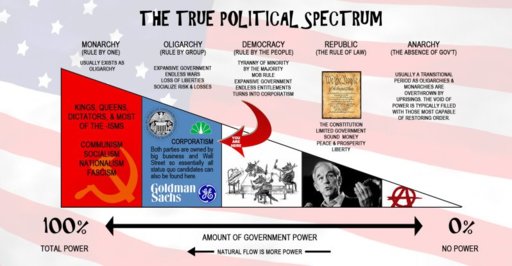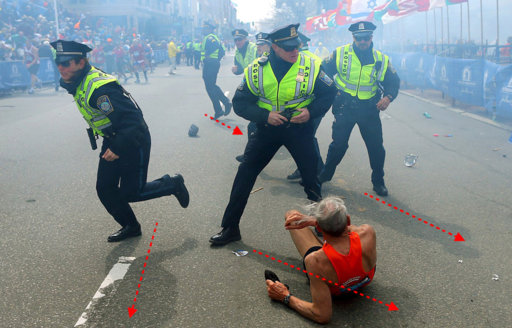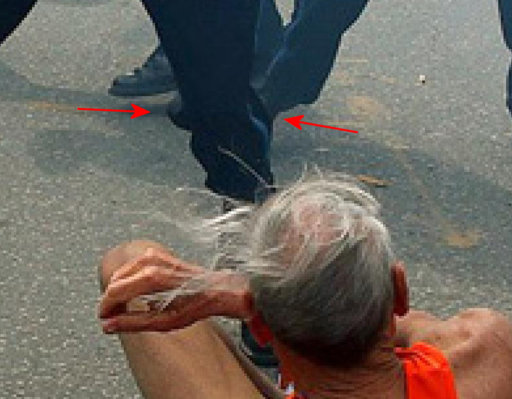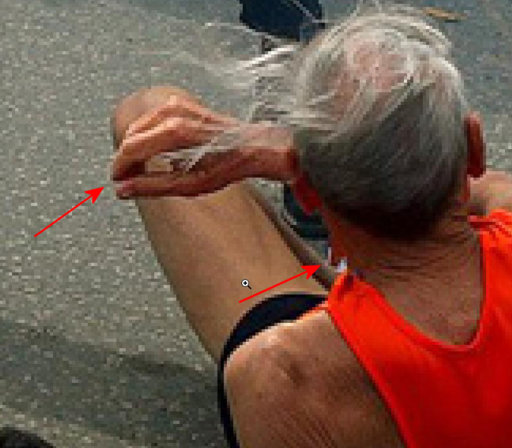Hello to all. I've been a lurker on the forum for a few months now. As somebody who formerly studied media theory and politics and who has a casual interest in the mass psychology of conspiracy theory, I've been admiring Metabunk for its thoughtful, collaborative dissection of CT topics. I marvel at your patience with some of the ideas and people you deal with here. I haven't been sure how to join the conversation or what I have to add, but today's attack in Boston has prompted me to venture a few thoughts.
Can you even imagine circumstances in which a guy like Alex Jones would respond to an event like today's by saying "This is an awful tragedy, but in this case bears no marks of anything other than an isolated event perpetrated by a few extremists" and leaving it at that? Why does everything have to be a conspiracy? I'm reminded of the idea of conspiracy theory as a psychological defense mechanism or coping skill (I've seen this referenced in many places; for the moment I can't cite who specifically originated or elaborated it). Frightening events in a random, chaotic, uncertain world are tough to handle. The CT mind actually feels "safer" when big, scary tragedies havebig, scary causes. (Not to mention that Alex Jones and others in the CT cottage industry make a living perpetuating their worldview; they have no financial incentive to be judicious or intellectually honest.)
And of course, confirmation bias and selective exposure are also at play in the processing of this kind of attack. We're in that awful, frustrating moment when the slow trickle of facts has yet to catch up with the immensity of the event, and all the media can do is replay footage, air press conferences, and bring talking heads on to fill time with speculation. Some are more cautious than others. I'm troubled by how the
NY Post has made original, obliquely sourced claims (e.g. that a "Saudi national" is in custody as a suspect, that the death toll is at 12 instead of 3). These may turn out to be true, but there's something gross about how quickly a paper like the
Post is willing to report facts in a way that speak to the biases of its right-wing readership, dramatizing the threat and magnitude of Islamist terrorism. And where the Far Right bleeds into the Conspiracist Right (e.g. freerepublic or FoxNation) they can't seem to make up their minds whether this is al-Qaida's doing or a "false flag" attack from Obama's ATF, or whether those are one in the same.
And it's interesting, Mick, how you mentioned the similarities to the 1996 Olympic Park bombings in the other thread. I'm no terrorism expert, but I too see similarities. I won't speak for you, but I'm trying to remind myself to be cautious.
One thing I've noticed while paying attention to my emotional responses today is that on some gut level I kind of instinctively assigned blame to right-wing anti-government extremists. There are superficially plausible reasons for doing so, as mentioned, with this taking place on April 15 in Boston on Patriots' Day, at roughly the anniversary of Oklahoma City/Waco, and at a time when the fringe right are already frothing over with anti-government paranoia. It makes sense and wouldn't surprise me. But on some level (and I'm not entirely comfortable admitting this) I think maybe there's this icky, irrational, unreasoning urge/wish on my part preferring that the Far Right be at fault. It's interesting in this period of uncertain speculation to note the part of my thinking that feels pulled toward evidence and hypotheses supporting that. My own little deployment of confirmation bias. What I mean to say is that at times like this even skeptics should be mindful of our own biases.
Excuse this lengthy ramble if I sound unclear. It's late here, I'm wound up, still a little rattled by processing everything that happened in Boston, and still a little unused to writing in the forum . It'll be interesting to watch with you all as this unfolds.
Lastly, I'm glad to hear that the friends and relatives of everyone on this thread seem to be okay.




